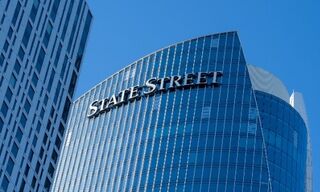Trading income was what concerned investors most for some time. But with mounting political uncertainties and an adverse economic outlook, the advisory business seems set to get looked at more closely.
The number of M&A transactions is a decent measure for the wellbeing of an economy. If business leaders are confident about the future of their industries, they are more likely to buy rival firms. Or, in the case of startups, to take the risk of going public.
The year 2019 was one of sustained prudence, a trend that has also affected the business of investment banks. In the first nine months, their advisory income declined 10 percent across the globe, the «Financial News» (behind paywall) reported, based on data from Dealogic.
30,000 on the Way Out
Even though the trading dispute between the U.S. and China is weighing heavily on economic prospects, Europe is affected nonetheless. Dealogic data suggested a decline by a quarter in that region – Switzerland’s giant UBS says the aggregate drop for that business is going to reach a third.
The development is a drag on an industry already in crisis mode outside the U.S. In all, companies are planning to cut some 30,000 jobs, the «Financial Times» (behind paywall) said, among others at Deutsche Bank, Société Générale, Barclays and Citigroup.
Swiss Cutbacks
With Piero Novelli and Rob Karofsky in charge at the UBS investment bank, the Swiss No. 1 also has started releasing staff this month and the company is bracing for longer-term lull in business.
Income from trading at UBS had disappointed in the final months of 2018 already. But the advisory business had actually been a positive surprise in the first half of this year as the bank had participated in a number of lucrative IPOs.
M&A Lull
SIX, the Swiss stock exchange operator, witnessed a lull in such activities in the third quarter and it looks rather unlikely that many IPOs will follow until Christmas, given the subdued sentiment.
The U.S. big banks meanwhile are doing very well. J.P. Morgan is No. 1 in the advisory business ranking, ahead of Goldman Sachs and Morgan Stanley, «Financial News» said. That will pile on the pressure on the European rivals, that once again are second-best only.


























